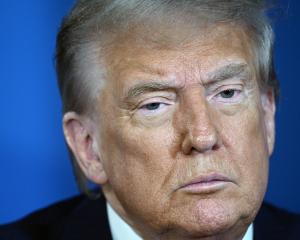BusinessNZ chief executive Phil O'Reilly and Prime Minister John Key are pleased with the invitation, with Mr O'Reilly saying it follows sustained work integrating the Australian and New Zealand economies.
This week's Australia-New Zealand leadership forum was an example of that work.
New Zealand and Australian businesses are going beyond CER and focusing on how together they can do business in Asian and wider international markets.
Being able to contribute to G20 decisions at the forum is evidence of the sound transtasman relationship and a welcome opportunity to go further in contributing to international economic policy, Mr O'Reilly says.
New Zealand is not a formal member of G20 because of its size, but successive governments have been supportive of the organisation, which includes the 20 largest global economies. The grouping contributes about 90% of global gross domestic product and 80% of international trade.
This is the first time New Zealand has been invited to contribute to a full year's deliberations.
The G20 has meetings of finance ministers and central bank governors, culminating in a leaders' meeting towards the end of the year.
However, despite the enthusiasm generated from Messrs O'Reilly and Key, the organisation faces some serious difficulties, as evidenced by the lack of any significant progress made in the September meeting held in St Petersburg.
Commentators were united in their criticism of what they described as the most forgettable of the eight G20 summits held to date.
The Centre for International Governance Innovation even suggested the G20 may be becoming irrelevant as a forum to provide the global economic leadership it was created to achieve.
The history of summits shows they can become overwhelmed with a major event occurring in close proximity to the meeting.
The horrific events in Syria dominated the media attention, and many of the leaders present, during the St Petersburg meeting.
Concerns over human rights abuses in Russia further isolated Russian President Vladimir Putin, hindering the capacity of the summit host to push for substantial outcomes.
Observers are worried G20 is falling into a bureaucratic morass of more words and less action.
Allegations of Canada helping the United States spy on world leaders at the 2010 G20 summit in Toronto have also added to some tenseness among member nations.
New Australian Prime Minister Tony Abbott takes over the G20 presidency at a time when it faces a problem of credibility.
Mr Abbott faces the challenge of trying to bring focus to the G20 work programme and agenda and reversing the sense of drift many feel already exists. The Centre for International Governance Innovation says if Mr Abbott is successful in these endeavours, the meeting will hold the possibility of important benefits for the global economy. Failure will leave the G20 on a downward trajectory from which it may never escape.
For his part, the Australian Prime Minister says the summit should result in real economic outcomes.
The summit will deal with trade, banking and the governance of international bodies.
He wants international organisations, such as the International Monetary Fund, to reflect modern economic realities.
He also wants to ensure big banks around the world are as safe as possible.
Freer trade will also be on the agenda.
Mr Abbott's government last week banned the takeover of ASX-listed Graincorp by an American company, but he says the decision does not clash with his goals for the G20 meeting.
Mr Key says New Zealand is a small trading nation but it has a significant stake in the global economy and will provide valuable input.
He aims to bring some ''small economy'' perspective to the discussions which may be different from the issues facing major economies.
While not the largest, New Zealand has one of the world's strongest economies - with the prospect of the Crown accounts returning to surplus in the next financial year.
It is hoped Mr Key can contribute to the G20 making some progress in global trade and financial reform during the next 12 months.











